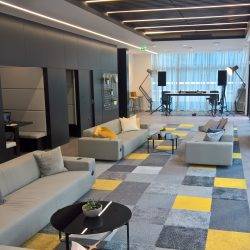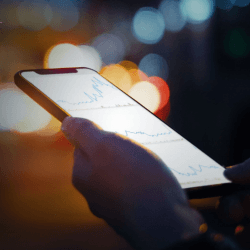To provide the best experiences, we use technologies like cookies to store and/or access device information. Consenting to these technologies will allow us to process data such as browsing behaviour or unique IDs on this site. Not consenting or withdrawing consent, may adversely affect certain features and functions.
The technical storage or access is strictly necessary for the legitimate purpose of enabling the use of a specific service explicitly requested by the subscriber or user, or for the sole purpose of carrying out the transmission of a communication over an electronic communications network.
The technical storage or access is necessary for the legitimate purpose of storing preferences that are not requested by the subscriber or user.
The technical storage or access that is used exclusively for statistical purposes.
The technical storage or access that is used exclusively for anonymous statistical purposes. Without a subpoena, voluntary compliance on the part of your Internet Service Provider, or additional records from a third party, information stored or retrieved for this purpose alone cannot usually be used to identify you.
The technical storage or access is required to create user profiles to send advertising, or to track the user on a website or across several websites for similar marketing purposes.
 Siemens has launched a new web-based application which reveals the readiness and potential of six major cities to embrace digitalization and develop new ways of living, working and interacting. The Atlas of Digitalization is based around the interconnected themes of Expo 2020 Dubai – Mobility, Sustainability and Opportunity – and assesses how the fourth industrial revolution has already impacted urban life around the world, and the potential it could have in the future. (more…)
Siemens has launched a new web-based application which reveals the readiness and potential of six major cities to embrace digitalization and develop new ways of living, working and interacting. The Atlas of Digitalization is based around the interconnected themes of Expo 2020 Dubai – Mobility, Sustainability and Opportunity – and assesses how the fourth industrial revolution has already impacted urban life around the world, and the potential it could have in the future. (more…)










 BSRIA has launched a new guide that aims to inform those involved in the design, construction and operation of a building about how an effective Business-Focused Maintenance (BFM) regime can be developed and achieved through the Soft Landings approach. The topic guide on Soft Landings and BFM is written as an ‘at a glance publication’ to give readers a glimpse of the subject and recommends further reading.
BSRIA has launched a new guide that aims to inform those involved in the design, construction and operation of a building about how an effective Business-Focused Maintenance (BFM) regime can be developed and achieved through the Soft Landings approach. The topic guide on Soft Landings and BFM is written as an ‘at a glance publication’ to give readers a glimpse of the subject and recommends further reading. 


 The UK’s regional cities are competing harder than ever with London to become the location of choice for the tech sector. According to CBRE’s report
The UK’s regional cities are competing harder than ever with London to become the location of choice for the tech sector. According to CBRE’s report 




 Procurement fraud is widespread in the UK and the country lags behind many countries in its detection capabilities,
Procurement fraud is widespread in the UK and the country lags behind many countries in its detection capabilities, 














April 8, 2019
Navigating organisations through digital transformation
by Ian Tickle • Comment, Technology
(more…)